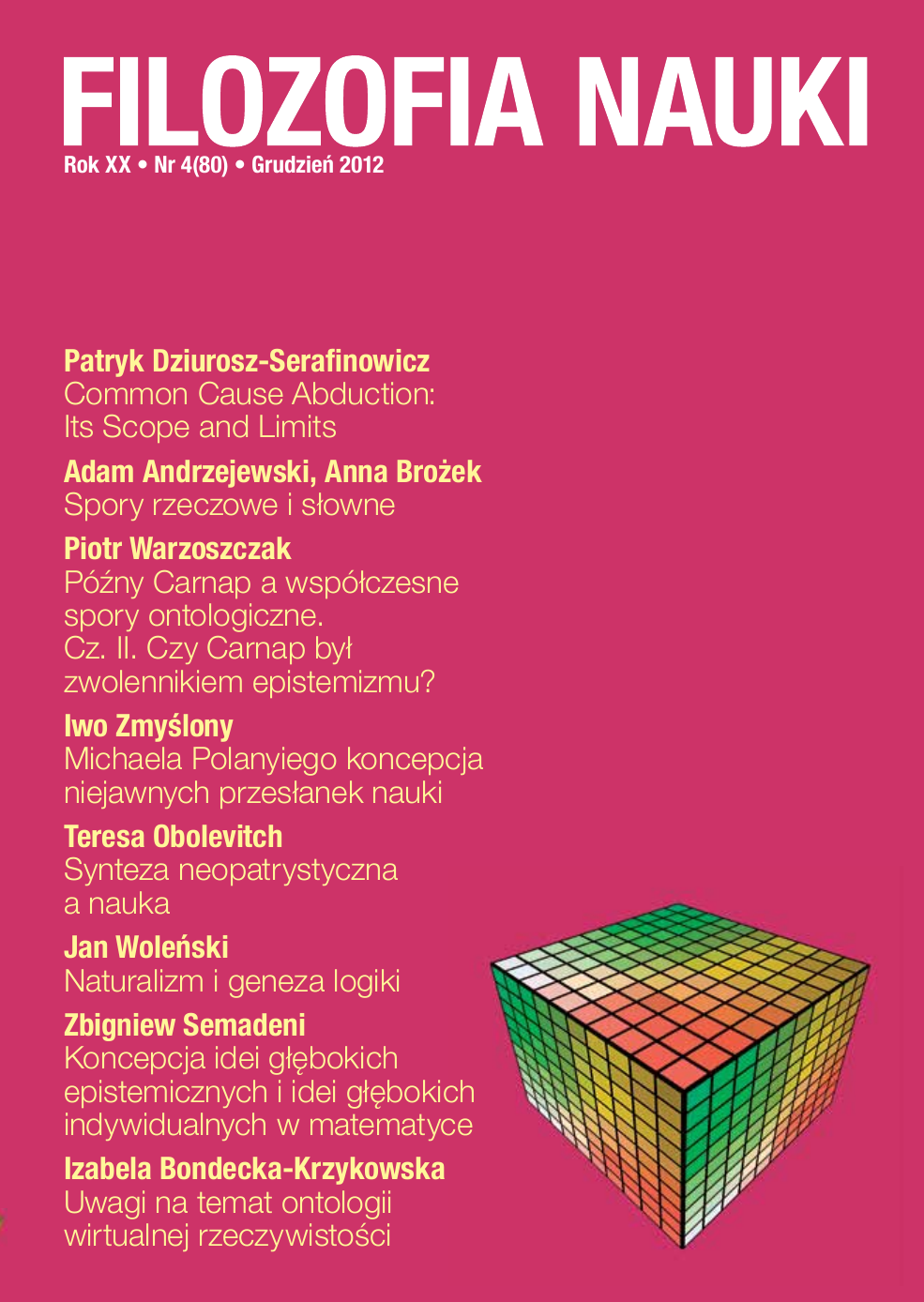Późny Carnap a współczesne spory ontologiczne. Cz. II. Czy Carnap był zwolennikiem epistemizmu?
Słowa kluczowe:
metaontology, deflationism, Carnap, fictionalism, epistemicismAbstrakt
In the paper I consider the prospects of interpreting late Carnap views on ontology as being in part a sort of epistemism. More precisely, I argue that the theses that he maintained in the Empirism, Semantics, and Onotology and the volume of The Library of Living Philosophers devoted to his philosophy put him close to proponents of epistemicism, according to which ontological debates over truth-values of metaphysical theses need not to be verbal disputes, but the prospects of resolving them are meager, since there are no evidences that could support either given metaphysical thesis or its negation. Most likely, Carnap should be read as a proponent of a more radical version of this view, since he maintained that in principle there are no such evidences. I find this view fit well with Carnap’s argumentative strategy against substantial character of metaphysical debates, since he stresses the lack of evidences in favour of or against metaphysical claims as the main reason for his deflationism in ontology. However, what is the most worrisome in taking this route of interpreting late Carnap views on ontology is that among the presuppositions of epistemicism is the thesis that one can make sense of the talk about truth-values of metaphysical claims, whereas Carnap maintained they lack truth-values due to lack of cognitive contents. But taking the change of his view on the nature of semantic values in the volume of The Library of Living Philosophers devoted to his philosophy, where he claimed that extralinguistic entities should serve a role of semantic values and the notion of truth should be defined relatively to a given interpretation in a given model, I find his opinion on metaphysical claims unjustified, since one can define the the notion of truth for these claims relatively to models and hence make a talk about their truth values (relatively to models) sensible. It doesn’t follow from that that one can also make a sense of a claim being absolutely true, since it would require to take one model to be special one in the sense that it fits the way reality is, which is something that the proponent of epistemicism deny on the ground that there are no evidences that could be taken to show that one of the models of a given language is special in this respect. I also discuss applications of the inference to the best explanation in argumentation in favour of various sorts of realism and argue that this kind of argumentation always leaves room for some ontological dispute between parties from which one deny the existence of entities that the other argued for through application of the inference to the best explanation and hence that no metaphysical debate can be resolved by application of the inference to the best explanation under the threat of circularity. The paper is the continuation of considerations made in my paper The Later Carnap and Contemporary Metaphysical Debates. Part I, in which I’ve argued that one can treat Carnap to be also a proponent of fictionalism. In effect, Carnap’s deflationism in ontology seems to be a combination of fictionalism and epistemicism.Pobrania
Opublikowane
2012-12-01
Jak cytować
Warzoszczak, P. (2012). Późny Carnap a współczesne spory ontologiczne. Cz. II. Czy Carnap był zwolennikiem epistemizmu?. Filozofia Nauki, 20(4), 45–62. Pobrano z https://www.fn.uw.edu.pl/index.php/fn/article/view/696
Numer
Dział
Artykuły















 Filozofia Nauki | ISSN 1230-6894 | e-ISSN 2657-5868
Filozofia Nauki | ISSN 1230-6894 | e-ISSN 2657-5868